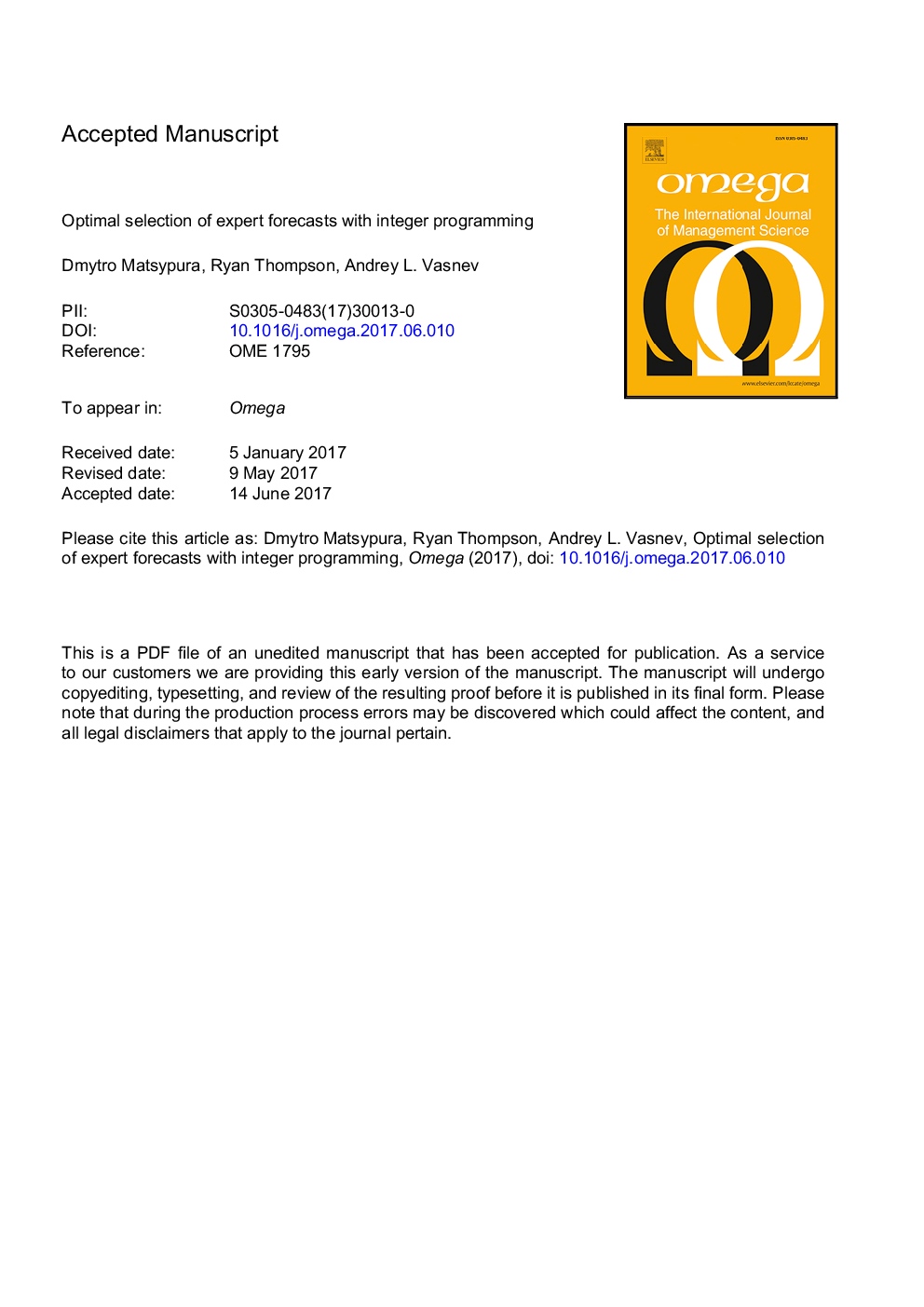| Article ID | Journal | Published Year | Pages | File Type |
|---|---|---|---|---|
| 7436631 | Omega | 2018 | 23 Pages |
Abstract
Combinations of point forecasts from expert forecasters are known to frequently outperform individual forecasts. It is also well documented that combination by simple averaging very often has performance superior to that of more sophisticated combinations. This empirical fact is referred to as the 'forecast combination puzzle' in the literature. In this paper, we propose a combination method that exploits this puzzle. Rather than averaging over all forecasts, our method optimally selects forecasts for averaging. The problem of optimal selection is solved using integer programming, a solution approach that has witnessed astonishing advancements. We apply this new method to forecasts of real GDP growth and unemployment from the European Central Bank Survey of Professional Forecasters. The results show that it is optimal to select only a small number of the available forecasts and that averaging over these small subsets almost always provides performance that is superior to averaging over all forecasts. Importantly, this new method is consistently one of the best performers when evaluated against a wide range of alternative forecast combination methods.
Keywords
Related Topics
Social Sciences and Humanities
Business, Management and Accounting
Strategy and Management
Authors
Dmytro Matsypura, Ryan Thompson, Andrey L. Vasnev,
